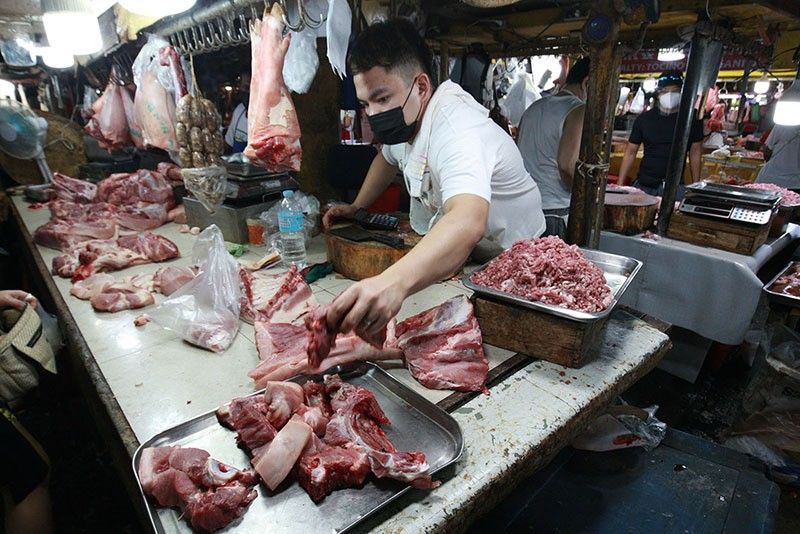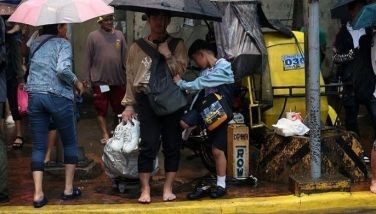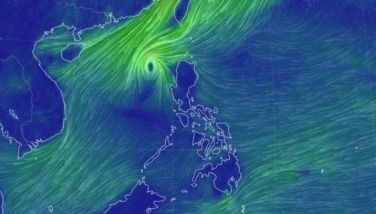Sotto suspects election fundraiser in rush to lower tariffs

MANILA, Philippines — Malacañang’s unnecessary and rush move to lower import duties and raise the minimum access volume (MAV) of pork – that will result in a multibillion-peso windfall for importers – could be a fundraiser for certain candidates in the May 2022 elections, Senate President Vicente Sotto III said yesterday.
Sotto, who is spearheading the ongoing Senate inquiry into the food crisis triggered by the spread of African swine fever (ASF) and the reported massive corruption at the Department of Agriculture (DA) and the Bureau of Customs (BOC), said he is not alone in his suspicions.
He said DA and economic managers were already aware of the danger of ASF entering the country since 2017 and when it did in 2019, the government had all the time to contain the first recorded outbreak in Rizal.
“Who’s to blame for mishandling the ASF? But what’s puzzling is that now that we’re about to have elections, suddenly we need to drastically raise the MAV and lower the tariffs?” Sotto told dzBB in Filipino.
“Somebody wants to make profits, isn’t that obvious…? Maybe these importers and those behind them want to make money big time. Maybe they’re needed when the elections come,” he said.
He maintained the stand of nearly all senators that there is no lack of supply of pork, adding the timing of President Duterte’s Executive Order 128, which reduced import duties to as low as five percent and raised the MAV to 350,000 metric tons (MT), was “really bad.”
Equally suspicious, Sotto said, is based on the DA’s own study last January, the country might only need a maximum of 150,000 MT of pork, which meant the agency knew early on to what level the MAV might be needed to be raised.
And yet, Duterte sent his request to raise the MAV at 350,000 MT only on March 26, or on the last day of session of Congress before it went on a break when lawmakers cannot tackle the request.
Under the law, Congress has the mandate to change tariffs and import volumes, and such authority is delegated to the President when lawmakers are not in session. If Congress fails to act on such requests after 15 days, the same is deemed implemented.
Senators are not buying the assertions of Agriculture Secretary William Dar and National Economic and Development Authority (NEDA) chief Karl Chua that there is a massive shortage of pork that can only be solved by flooding the country with imports and lowering tariffs.
The government’s mishandling of the ASF outbreak and DA’s proposal to flood the country with pork imports and lower tariffs have been the subject of investigation by the Senate agriculture committee, chaired by Sen. Cynthia Villar, since last year.
Early on, lawmakers have voiced opposition to the proposal which they said would lead to the collapse of the P248-billion local hog industry.
During previous hearings, private pork importers said they can still earn comfortable profits even with the existing 30 percent tariff for importations within MAV, and 40 percent for imports outside MAV through at least a 10 percent margin monthly or 120 percent in 12 months.
But as the panel’s probe progressed, issues on food and national security, massive corruption and smuggling of pork were uncovered, prompting the chamber to transfer the probe to the Senate committee of the whole, where all senators are members.
Sen. Panfilo Lacson said aside from pork and poultry, the government is also losing billions of pesos a year due to irregular practices involving the importation of fish and seafood products.
Lacson cited the huge discrepancies between the records of the World Trade Organization and the Philippine Statistics Authority in terms of fish and seafood importation from the top 15 exporting countries from 2015 to 2020.
“The Department of Agriculture will have a lot of explaining to do. The discrepancies may mean there is a lot of misdeclaration, underdeclaration or outright smuggling. There’s a pattern,” he said at the second hearing of the Senate committee of the whole on irregularities involving agricultural products on Thursday.
“It’s not just in pork and poultry products where there are irregularities. It cuts across practically all FSRAs (food safety regulatory agencies). What action has the DA taken? The bottom line is that we have lost so much revenues – some P1.058 billion yearly from 2015 to 2020 in foregone revenues on imported fish and seafoods alone on account of all these discrepancies,” he said.
Citing data obtained by his office, he said the average total estimated tariff disparity between the WTO data on imported fish and seafoods amounts to an average of P1.058 billion per year.
He questioned as well the discrepancy in records of the WTO and PSA in the importation of non-mechanically deboned meat (MDM) chicken products, with an average of 190 million kilos of unaccounted non-MDM chicken from 2015 to 2020.
Some importers would declare the non-MDM chicken products as MDM to avail themselves of the five percent tariff, which is much lower than the 30 percent for in-quota importation and 35 percent for out-quota importation of non-MDM products, he said.
“While the government loses billions of pesos in potential revenues, the pockets and bank accounts of some importers and corrupt officials continue to grow bigger,” the senator said.
- Latest
- Trending
































